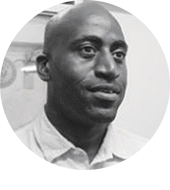
A COMMON problem experienced when attempting to solve a problem, is simply the choice of where to start, and how to proceed, especially when multiple options exist. Sometimes, a full solution may not be evident, but just a step in the right direction. If working jointly on the problem, the choices may be further compounded when competing viewpoints emerge.
Sometimes using a computer may help to deal with the large numbers involved, if the problem is purely about facts and figures. Unfortunately, other interesting problems may be disguised differently. Take the problem of a student attending an institution of higher learning, wanting to do some background reading to research a topic. The decision problem appears again, this time, as a choice of which items to read, to get the desired information within the time allotted.
No doubt, using eBook technology, keywords can be searched to narrow down the choices. For reading though, no matter how many computers are used, there is still the need to actually read the documents. Technology has its limits!
When you use a search engine, it categorises the results into groups of relevant and not relevant items. The more relevant an item, the more likely it is to appear in your overall results. If we use a similar strategy when looking through mountains of information, we may likewise achieve good results.
Back to the school and student example, every document can and should be placed in a category of either relevant or not relevant. Whether searching for recipes online, or performing a comprehensive literature survey for your advanced thesis, the same strategy holds merit. Therefore, every ounce of effort is spent productively, since everything touched can be categorised, with little effort wasted.
It is powerful to recognise that such techniques can be used with tremendous benefit to the user, whether or not a computer is involved. A useful reminder that simply using a computer does not necessarily improve efficiency. For those of us who design systems, the challenge is to ensure that we meaningfully apply these principles to benefit others.
Editor’s note: Dr. Lyndell St. Ville is an ICT Consultant with a background in environmental science. His expertise includes systems analysis, planning, and capacity building. To share your views, contact the author at: www.datashore.net or via The VOICE.












